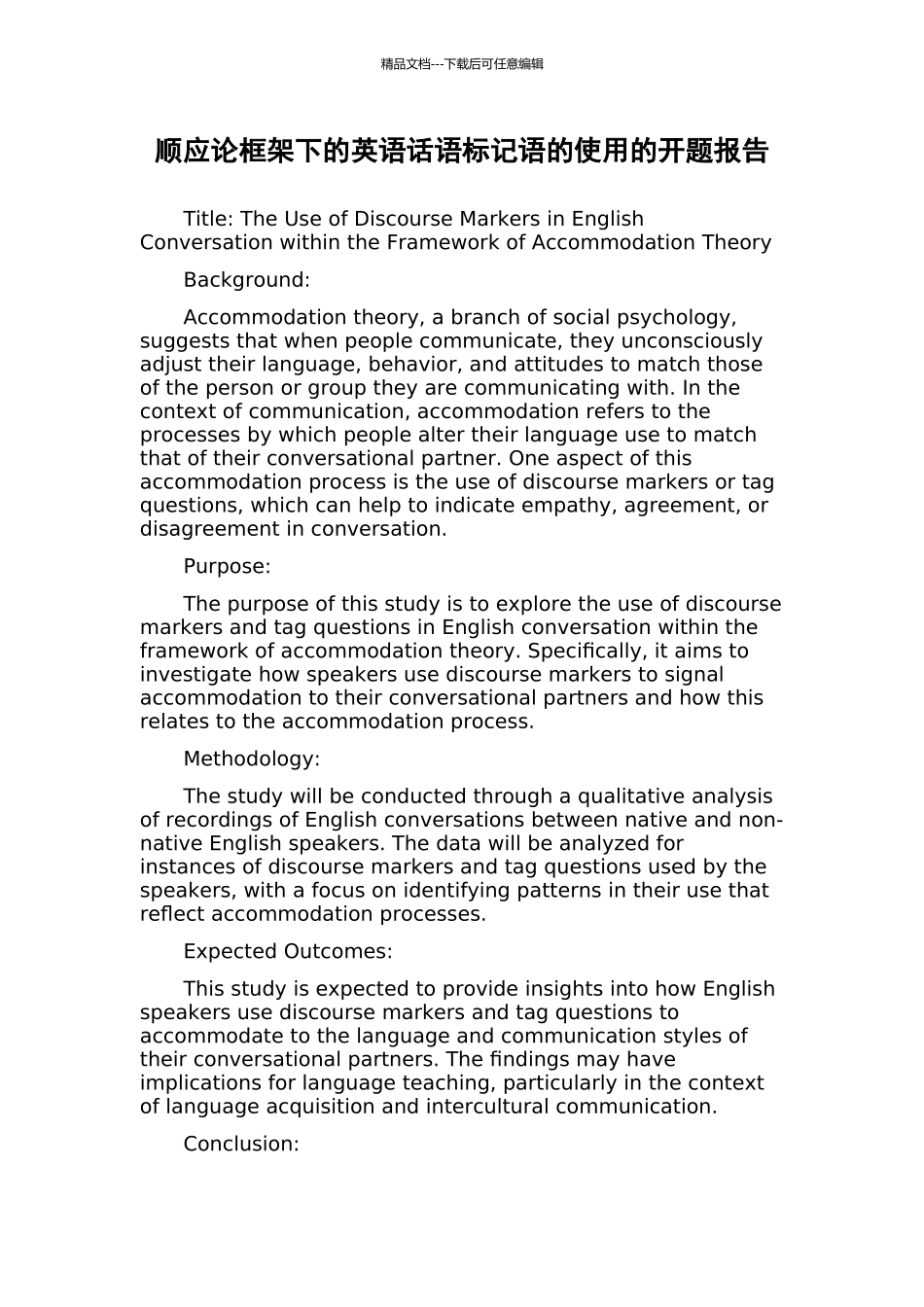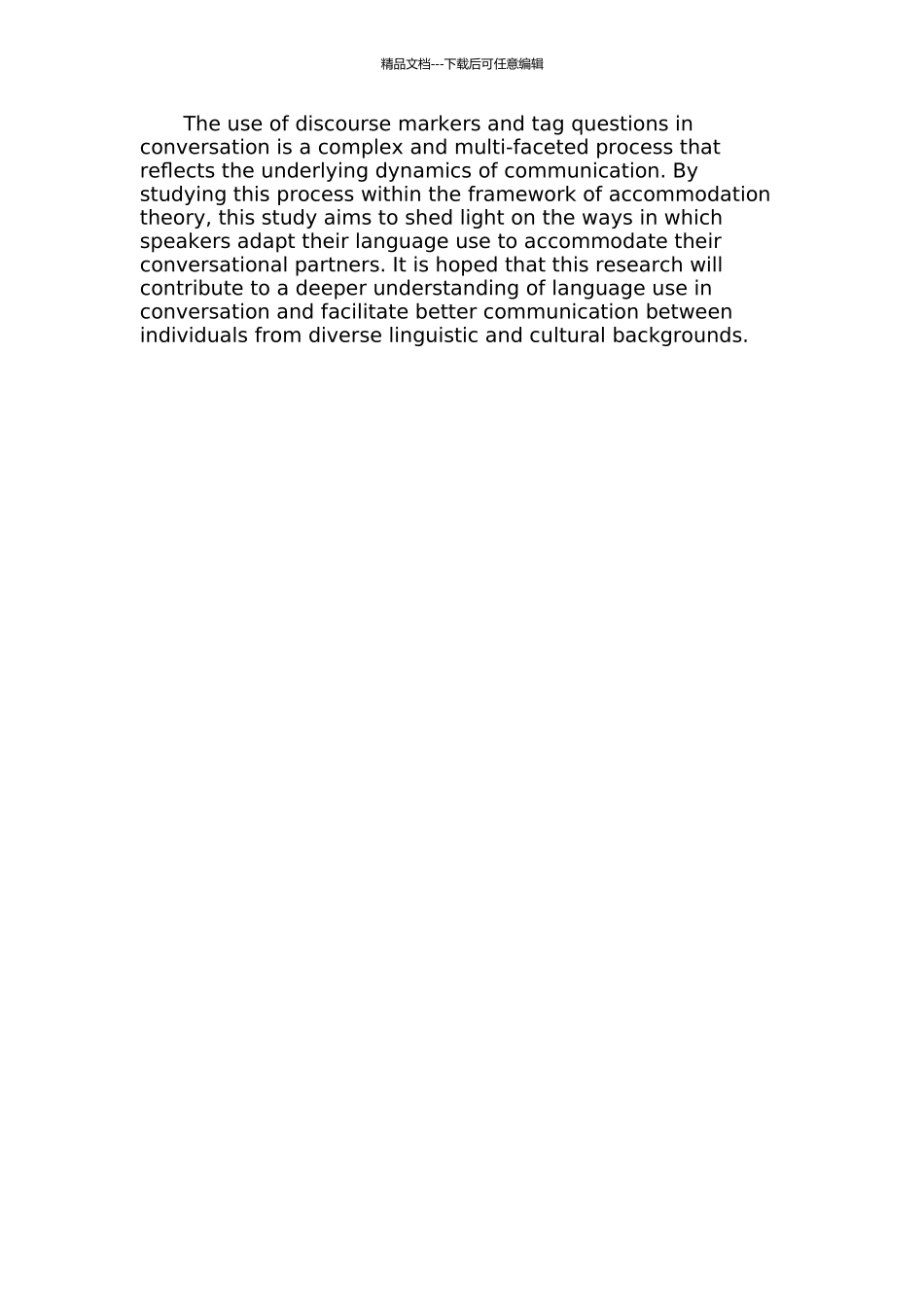精品文档---下载后可任意编辑顺应论框架下的英语话语标记语的使用的开题报告Title: The Use of Discourse Markers in English Conversation within the Framework of Accommodation TheoryBackground:Accommodation theory, a branch of social psychology, suggests that when people communicate, they unconsciously adjust their language, behavior, and attitudes to match those of the person or group they are communicating with. In the context of communication, accommodation refers to the processes by which people alter their language use to match that of their conversational partner. One aspect of this accommodation process is the use of discourse markers or tag questions, which can help to indicate empathy, agreement, or disagreement in conversation. Purpose:The purpose of this study is to explore the use of discourse markers and tag questions in English conversation within the framework of accommodation theory. Specifically, it aims to investigate how speakers use discourse markers to signal accommodation to their conversational partners and how this relates to the accommodation process.Methodology:The study will be conducted through a qualitative analysis of recordings of English conversations between native and non-native English speakers. The data will be analyzed for instances of discourse markers and tag questions used by the speakers, with a focus on identifying patterns in their use that reflect accommodation processes.Expected Outcomes:This study is expected to provide insights into how English speakers use discourse markers and tag questions to accommodate to the language and communication styles of their conversational partners. The findings may have implications for language teaching, particularly in the context of language acquisition and intercultural communication.Conclusion:精品文档---下载后可任意编辑The use of discourse markers and tag questions in conversation is a complex and multi-faceted process that reflects the underlying dynamics of communication. By studying this process within the framework of accommodation theory, this study aims to shed light on the ways in which speakers adapt their language use to accommodate their conversational partners. It is hoped that this research will contribute to a deeper understanding of language use in conversation and facilitate better communication between individuals from diverse linguistic and cultural backgrounds.

